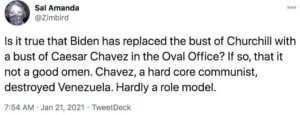There are two organizations in which the members are largely responsible for monitoring their own behavior. The first is professional golf. While there are rules officials on the course during every tournament, they rarely have to charge a player with a violation of the sport’s behavioral canons or assess penalties. A professional golfer who deviates from the standard of self-policing can quickly be marked by fellow contenders as a persona non grata.
To understand this principle, one need look back no farther than the 10th hole at Torrey Pines during the third round of the Farmers Insurance Open this past weekend. Patrick Reed’s second shot found the left rough, bounced and dove into the deep blend of kikuyu, rye and poa annua grass. Reed, upon reaching his ball, believed it was embedded in the softer than usual ground, understandable considering the course had been pummeled by rain and sleet the previous day. Instead of immediately calling for an official or asking another member of the threesome to confirm his judgment, Reed picked up the ball and examined the lie. Immediately, the online golf community speculated Reed should be assessed a two-stroke penalty for moving the ball.
The same day, Rory McIlroy faced a similar situation on the 18th hole and took comparable relief. However, McIlroy did not face similar protests on the internet. Was it merely the fact McIlroy first conferred with playing partners Robby Shelton and Will Gordon before touching the ball? Were the situations so different to suggest Reed actually violated the rules while McIlroy had not? Not according to the tournament officials who, after reviewing video of Reed’s actions, did not assess any penalty.
Technically, both players adhered to the procedures laid out in Sections 16.3 and 16.4 in the “Rules of Golf.” Then, what was the difference which created an uproar in one case and not the other? Two things. First, in golf, there is a difference between the letter of the law and the spirit of the game. While acknowledging Reed did not technically violate a rule, all four CBS commentators–Nick Faldo, Ian Baker Finch, Frank Nibolo and Dottie Pepper–said they would never have done what Reed did. They confirmed McIlroy followed the more common and accepted practice of involving others BEFORE moving his ball.
The second is what one announcer referred to as Reed’s “pre-existing condition.” This diagnosis was based on Reed’s history of questionable actions going back to his college days at the University of Georgia where he was dismissed from the golf team after just one year. Subsequent behavior including arguments with course officials, additional charges of cheating and homophobic hot mic comments have made Reed one of the most unpopular players among his peers. Therefore, if like McIlroy, the issue on Saturday had been a one-off, he too may have received the benefit of the doubt. But one’s credibility and reputation depends not only on what you do today, but past patterns of behavior.
Which brings me to the second organization in which members are expected to self-monitor, the United States Senate. And in this particular case, Republican senators. They too have a Reed-like “pre-existing condition.” When out of power, GOP members of the upper chamber of Congress beg the Democratic leadership to give a little in order to win bi-partisan support for pending legislation. But it is never enough. Of course, the best example is the Affordable Care Act. At Republicans’ request, Democrats agreed to remove a public option to increase support for the bill, much of which was modeled after Massachusetts law championed by then governor Mitt Romney. However, following adoption of several GOP-sponsored amendments, not one Republican voted for passage of the bill.
So yesterday, when the 10 Republicans who brought their counter proposal for COVID relief to the Oval Office claimed they were acting in the spirit of bi-partisan unity, should we give them the benefit of the doubt? That depends less on what they say and do today than their history in similar situations. If politics were golf, you might call that past behavior “fore! play.”
Postscript: Origins of a Conspiracy Theory
Some alt-right conspiracies are understandable. For example, Trump supporter Sal Amanda posted the following on Twitter.
Forget the misspellings and typos. Anyone could confuse labor and civil rights activist Cesar Chavez for the late Hugo Chavez. Right?
But how do you explain Marjorie Taylor Green’s conspiracy theory the California wild fires were started by Jewish anarchists using space lasers? Last night, while searching for songs on Amazon Music Unlimited, I think I found the answer. There it was, the all-Aryan cast album of the 2020 production of Fiddler on the Roof on which the eighth song “Tevye’s Dream” identifies the leader of this Hebraic cadre of international renegades as “the butcher ‘Laser’ Wolf.”
You cannot make this stuff up. Or maybe you can.
For what it’s worth.
Dr. ESP
